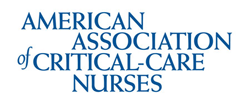Newswise — Conversations about COVID-19 vaccines will likely be a centerpiece this holiday season, bringing potential tension to long-awaited time with loved ones as the pandemic continues to assail the American public.
The American Association of Critical-Care Nurses (AACN) has created a guide to help those who have been vaccinated to engage in constructive conversations with family members and friends who are hesitant about the vaccine. The toolkit is part of AACN’s Hear Us Out campaign to report nurses’ reality from the front lines of the COVID-19 pandemic and urge those who are unvaccinated to reconsider.
“COVID-19 is still here. The majority of patients with COVID we’re seeing in ICUs haven’t been vaccinated, and their journey often ends with a nurse holding their hand as they die,” said Beth Wathen, AACN president and a clinical practice specialist in Denver. “Nurses need allies to end this pandemic, and productive conversations about the vaccine among family, friends and those who trust each other can open minds.”
The toolkit includes tips to help individuals prepare for potentially challenging conversations and talk with those who hesitate to get vaccinated. It provides resources to continue the conversation, including tip sheets, links to trusted information sources, short videos of nurses sharing profound experiences of taking care of unvaccinated patients with COVID-19 and more to help keep talking with people about the importance of getting vaccinated.
“This toolkit offers straightforward tips to keep sensitive conversations from becoming confrontational,” said Stephanie Burdick, a community health strategist in Salt Lake City. “It fills a critical gap in community health education as the public prepares to celebrate the upcoming holidays with friends and loved ones.”
A recent AACN survey of more than 6,500 acute and critical care nurses found that 76% of respondents say that people who have yet to be vaccinated threaten nurses’ physical and mental well-being. It also found that 92% of nurses surveyed said they believe the pandemic has depleted nurses at their hospitals and, as a result, their careers will be shorter than they intended.
“We know that people in communities with low vaccination rates are at greater risk for becoming seriously ill with COVID-19 and dying from what is now largely a preventable disease,” said Amanda Bettencourt, AACN president-elect and an assistant professor in Philadelphia. “The pandemic has brought the nursing profession into crisis, and the public is a critical part of the solution. The fastest way out of this is by more people getting vaccinated.”
To learn more about how AACN is helping Americans have informed and constructive conversations about the decision to be vaccinated, visit hearusout.com.
About the American Association of Critical-Care Nurses: For more than 50 years, the American Association of Critical-Care Nurses (AACN) has been dedicated to acute and critical care nursing excellence. The organization’s vision is to create a healthcare system driven by the needs of patients and their families in which acute and critical care nurses make their optimal contribution. AACN is the world’s largest specialty nursing organization, with more than 130,000 members and over 200 chapters in the United States.
American Association of Critical-Care Nurses, 27071 Aliso Creek Road, Aliso Viejo, CA 92656; 949-362-2000; www.aacn.org; facebook.com/aacnface; twitter.com/aacnme
